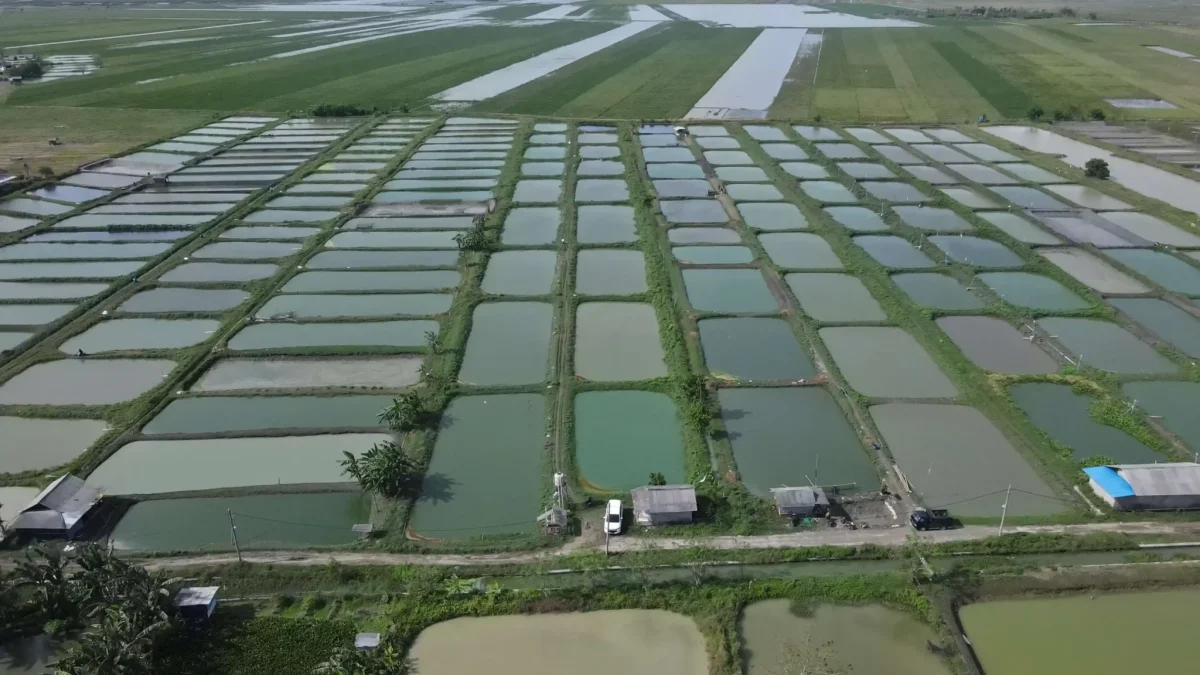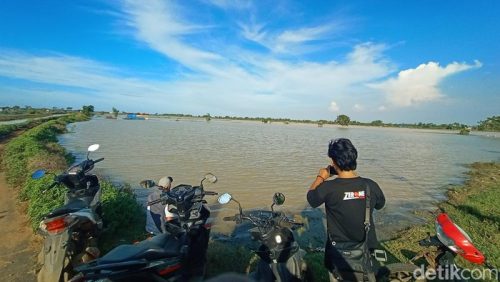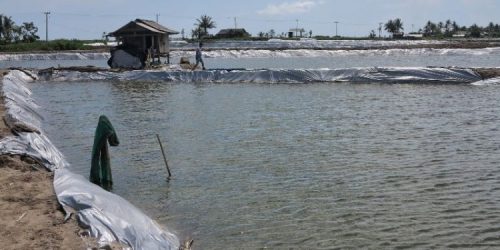The Impact of Climate Change on the Fish and Shrimp Farming Industry: Challenges and Opportunities

Photo Credit : eFishery
Climate change has increasingly become a major concern in the last decade. Its impacts are not only felt in the natural environment, but also in the economic sector. One sector that is affected is the fisheries industry, particularly fish and shrimp farmers.
Climate change, characterized by an increase in global average temperature, changes in weather patterns, and rising sea levels, has had a significant impact on the environmental conditions of the waters where fish and shrimp live and grow. For example, an increase in temperature can affect the metabolism and growth rate of fish and shrimp, while changes in weather patterns can affect the availability of food. Here is a further explanation.
- Climate Change and Deviation of Water Temperature: Climate change has caused an increase in the average temperature worldwide. One significant impact is the increase in water temperature, both in the sea and in freshwater. This increase in water temperature has a direct impact on aquatic life, including fish and shrimp. Higher water temperatures can affect the metabolism of fish and shrimp, which in turn affects their growth rate and reproduction. For example, higher water temperatures can accelerate the growth of fish and shrimp, but can also shorten their life cycle and reduce their body size. In addition, higher water temperatures can also affect the availability of oxygen in the water, which is important for the survival of fish and shrimp. Higher water temperatures can reduce the oxygen content in the water, which can cause stress in fish and shrimp and affect their health.
- Rising Sea Levels: Rising sea levels are one of the most significant impacts of climate change, and this has direct implications for fish and shrimp farmers, especially those operating in coastal areas. Rising sea levels can cause flooding and coastal erosion, which can damage pond infrastructure. This can result in significant economic losses for farmers. In addition, rising sea levels can also change coastal and estuarine habitats that are important areas for spawning and development of fish and shrimp larvae. These changes can affect the life cycle and productivity of fish and shrimp. With higher sea levels, coastal areas become more vulnerable to floods and storms. This can result in damage to ponds and potential loss of fish and shrimp stocks.

Photo Credit : Dian Utoro Aji
Story of the Local Farmer
In the pond location in Cirebon, around 2017-2018, the area was often hit by tidal floods that caused the cultivated fish to disappear in a short time. Farmers have to face a situation where their ponds turn into seas due to overflowing water. Although a dike has been built 1-3 meters high, the dike has not been fully able to withstand the incoming tidal flood. Another problem faced by farmers is the premature milkfish seedlings that require 6-9 months to reach harvest time. Previously, farmers could usually harvest every 3 months. This situation results in farmers facing economic challenges and feeling frustrated due to their declining production and income.

Photo Credit : harianpelitanews.id
However, the local government came up with a solution in the form of a cultivation village program from the Food and Fisheries Resilience Agency (DKPP) of Cirebon Regency. The program provides assistance in the form of feed and fish seeds worth about 500 million rupiah to farmers. In addition, the fish seed sowing period is accelerated to August, considering that tidal floods often occur in February.
With the help and changes in cultivation strategies, milkfish farmers in Cirebon are able to better cope with the challenges of tidal floods. The cultivation period, which originally took 6-9 months, can be accelerated to just 5-6 months. This allows farmers to harvest more frequently and increase their income. The cultivation village program from the DKPP of Cirebon Regency provides new hope for milkfish farmers in Cirebon to survive and optimize their cultivation potential amidst the environmental challenges they face.
The Role of Government
Role of the Government The government plays a crucial role in addressing the impacts of climate change on the fish and shrimp farming industry. Here are some ways in which the government can be involved in this issue:
First, the government can design and implement policies and regulations aimed at protecting the farming industry from the negative impacts of climate change. For example, the government can encourage the implementation of regulations that promote sustainable and environmentally friendly farming practices.
Second, the government can support research and development to find solutions to the challenges faced by farmers due to climate change. For example, government support in research on fish and shrimp species that are more resistant to temperature or salinity changes can provide innovative solutions for farmers.
Third, the government can provide education and training for farmers to help them adapt to climate change. This can include training on the use of new technology or the implementation of more sustainable cultivation methods. With increased knowledge and skills, farmers can more effectively face the challenges of climate change.
Through these efforts, the government plays a key role in supporting the fish and shrimp farming industry in facing the impacts of climate change. Collaboration between the government, farmers, and other stakeholders will be key in achieving long-term sustainability for this industry.

